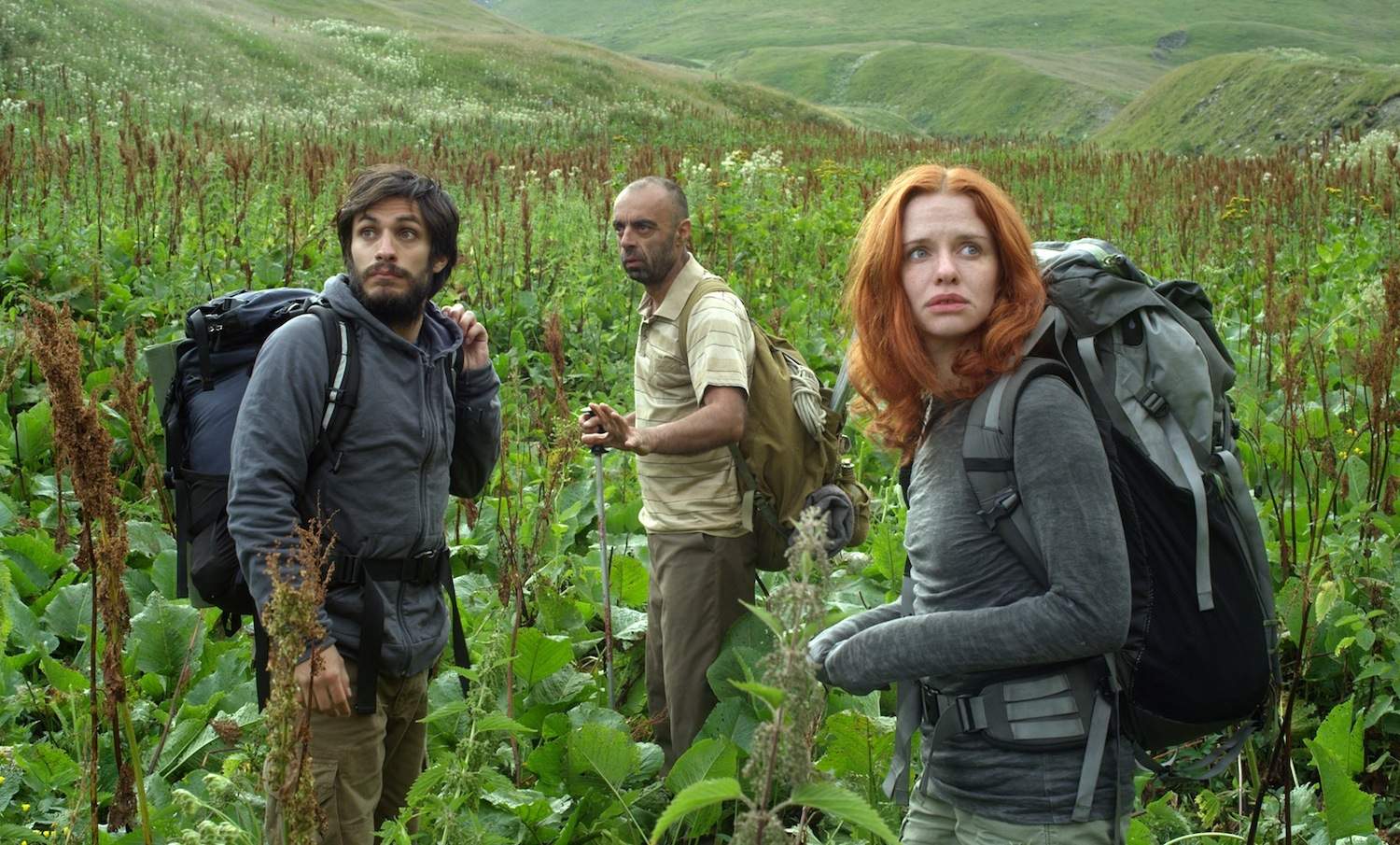The Loneliest Planet
Backpacking couple Nica and Alex find their world turned upside down when they venture into the Georgian wilderness.
Overview
When blissed out, soon-to-be-married American couple Nica (Hani Furstenberg) and Alex (Gael Garcia Bernal), set off on a hiking adventure in Georgia's remote Caucasus Mountains, they have little idea that their seemingly idealistic world is about to be profoundly challenged.
To all appearances, the two share an unshakeable connection — spiritually at ease yet sexually charged. Nica is spirited and independent, and Alex adores her. They toy with language games, compete playfully over who is fastest or strongest, and are in free pursuit of their mutual wanderlust. Local guide Dato (Georgian actor and real-life expert mountaineer Bidzina Gujabidze) leads them through one breathtaking scene after another.
Then, halfway through the film, a single event (not to be delineated here, for fear of giving too much away), corrupts the couple's bond, raising questions of trust, betrayal, and guilt.
The Loneliest Planet, loosely based on Tom Bissell's short story Expensive Trips Nowhere, continues the minimalist style established in Russian-born, American-raised director Julia Loktev's second feature, Day Night Day Night(2006). Dialogue is sparse and we learn next to nothing of the specific details that conventionally define character — history, family, education, career, values and so forth. Nearly everything that we do know, we discover through action and we interpret through the camera's positioning.
Loktev is a big fan of the long shot. Numerous scenes portray Nica, Alex and Dato "together alone", united by their common journey yet divided, both spatially and emotionally. The deeper the trio move into Georgia's rugged, unpredictable wilderness, the more vulnerable and exposed they appear. Cinematographer Inti Briones successfully captures the striking undulations of the landscape, contrasting shadowy valleys with verdant grassy hills and creating ominous campfire scenes through single source lighting.
Loktev's intention is to carry us into the film's mental and physical world, one in which time seems to stretch on forever and all conviction has been thrown into doubt. We identify Nica and Alex as representative of a 'type' — the earnest backpacker, keen to escape insular Western existence but overwhelmed when 'the wild' presents them with more than they'd bargained for. Nica demonstrates the behaviour of a self-sufficient, modern woman, yet Alex's failure to meet her expectations causes bitter disappointment. The film explores some of the grey areas arising from the breakdown of traditional dichotomies: West versus Other, male versus female, impulse versus duty.
However, while Loktev's aims are admirable, her approach is risky. The limited development of the characters threatens to undermine our emotional engagement and the snail-paced tempo can seem laboured at times. Just as lovers ensconced in a romantic affair might potentially struggle with the vagaries of reality, a filmmaker engrossed in a concept may run the risk of occasionally losing sight of the viewer's experience at the point of reception.





